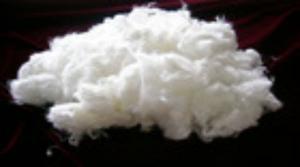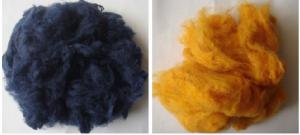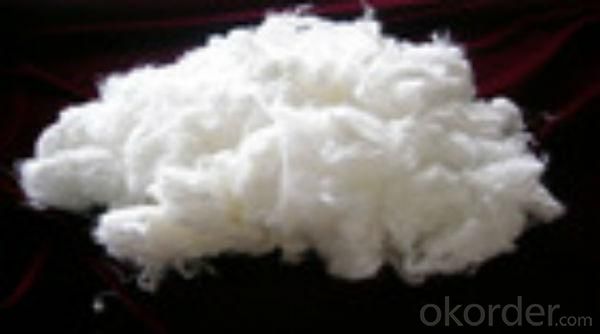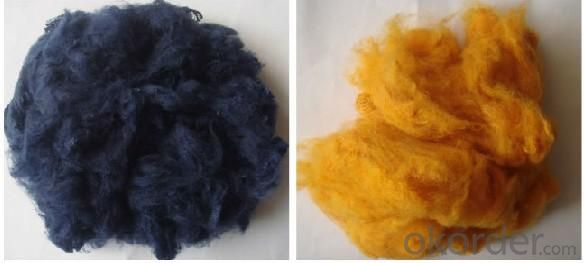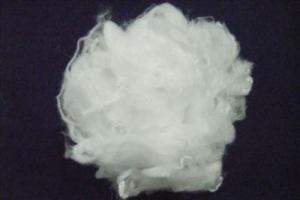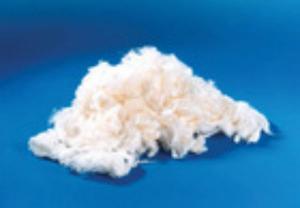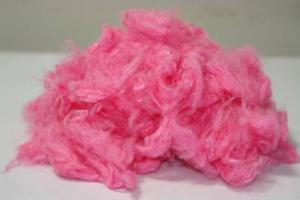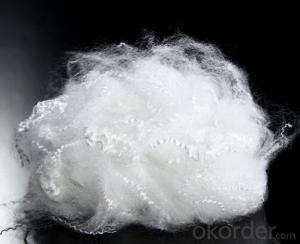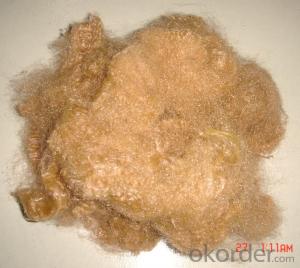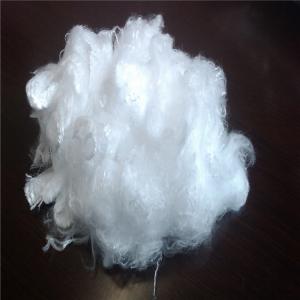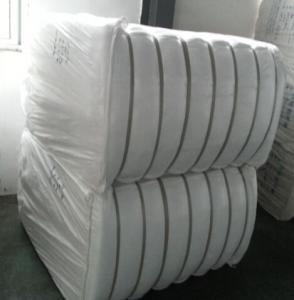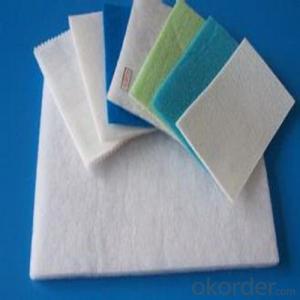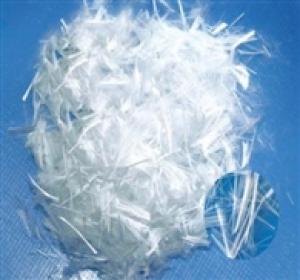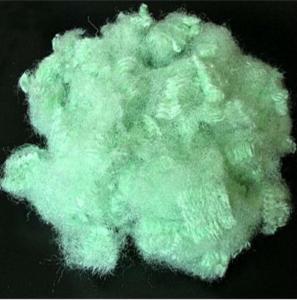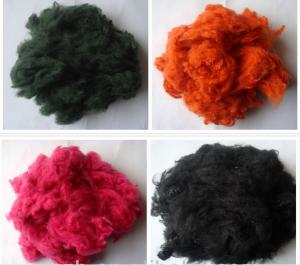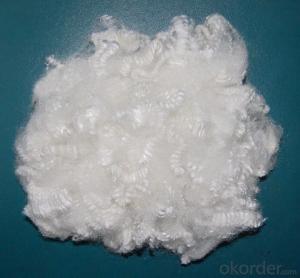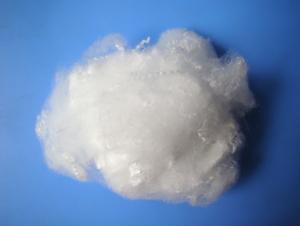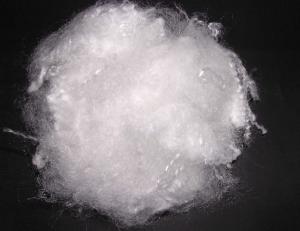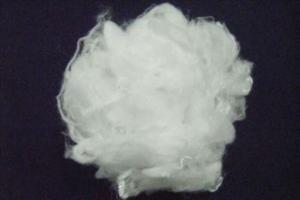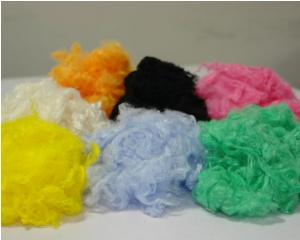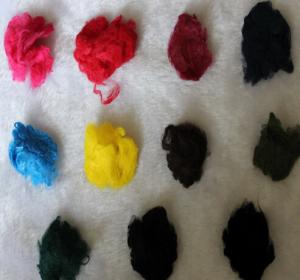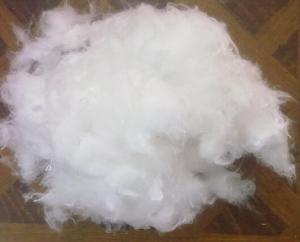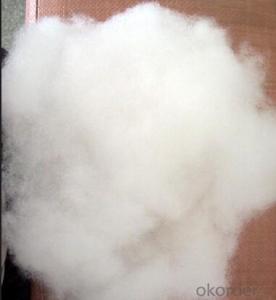Polyester Staple Fiber
- Loading Port:
- China Main Port
- Payment Terms:
- TT or LC
- Min Order Qty:
- 1 TON m.t.
- Supply Capability:
- 2000 Tons Per Month m.t./month
OKorder Service Pledge
OKorder Financial Service
You Might Also Like
Polyester fiber is widely used for spinning, nonwoven, carpet, wadding.
Material: 100% Polyester
Fiber Type: Staple
Pattern: Raw
Style: Solid
Grade: Recycled
Feature: Anti-Static
Use: Spinning
Fiber Length: 32mm-102mm
Fineness: 1.5D-15D
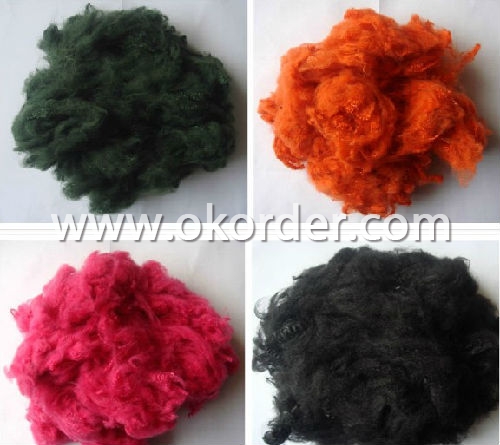
Detail Specification of Polyester Staple Fiber:
2) 1.33Dtex x 38mm, bright for sewing thread
3) 1.33Dtex x 38mm, S/D
4) 2.22Dtex x 51mm, M/L
5) 3.6Dtex x 65mm, wool type
6) 1.33Dtex x38mm, optical white bright & S/D
7) Colorful fiber
8) Cationic fiber
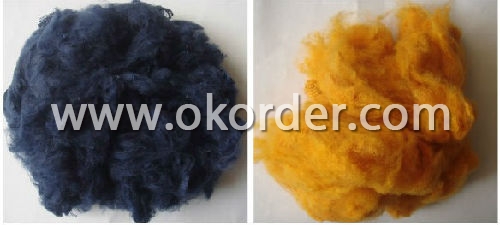
- Q: Is the shirt pure cotton or cotton mixed with polyester?
- Cotton and polyester blended shirt, indeed more crisp, easier to manage, but not easy to wrinkle, but personal comfort will be greatly inferior to cotton clothes. Especially for you, polyester fiber (polyester) is higher in content than cotton. If your skin is more sensitive, but it is next to wear a shirt (do not wear bottoming), it is recommended to buy cotton well.
- Q: Jade LeBron amplification check: what is the meaning of ah granular fiber structure
- Jade a cargo inspection: amplifying fiber structure is granular by magnifying the check, the emerald crystal composed of granular fiber structure.
- Q: The difference between polyester and hollow fiber
- No analogy, polyester fiber refers to polyester fiber, hollow fiber refers to the processing of fiber form is hollow.
- Q: How about the fabric panties of bamboo fiber?
- Bamboo fiber is a kind of cellulose fiber extracted from natural bamboo. It is the fifth natural fiber after cotton, hemp, wool and silk.Bamboo fiber has the characteristics of good air permeability, instant water absorption, strong abrasion resistance and good dyeing property. Meanwhile, it has the functions of natural antibacterial, bacteriostasis, mite removal, deodorization and anti ultraviolet. Bamboo fiber is a kind of natural environmental friendly green fiber in real sense. The bamboo fiber textile completely replicates the natural characteristics of the bamboo fiber.Buy a high content of bamboo fiber, so that it is comfortable to wear, washing to use medium washing liquid.
- Q: What are man-made fibers? What are his strengths and weaknesses?
- Synthetic fibers are often used as underwear materials and are popular because of their comfort and proximity. Lycra and cotton is the underwear industry leader in materials. Cotton not only eliminates the stained part, make underwear more environmentally friendly, but also retain the cotton soft and comfortable, very suitable for the production of underwear.In addition, nylon is another representative product of man-made fibers. Nylon is our commonly known as nylon, it has the elasticity, acid and alkali corrosion, not easy to mildew, strong wear-resistant features, but also makes nylon became the first choice of factory work clothes. But it also has some shortcomings, nylon obvious lack is not sweat absorption, comfort is relatively poor; and long drying, yellowing, aging; long wear will pilling.
- Q: Which material is expensive, chiffon or polyester?
- Polyester fiber is a fiber, said popular point, is a textile material, is the fabric of raw materials, not fabrics. Therefore, there is no comparison between the two.
- Q: Why has the fabric of bamboo fiber shrunk so much?
- Bamboo fiber is a kind of cellulose fiber extracted from natural bamboo. It is the fifth natural fiber after cotton, flax, wool and silk. Bamboo fiber has good air permeability, instant water absorption, strong abrasion resistance and good dyeing properties, and has the functions of natural antibacterial, bacteriostasis, mite removal, deodorization and anti ultraviolet.
- Q: Is polyester fiber sound proof board environmentally friendly?
- Polyester fiber sound-absorbing board, known as polyester fiber decorative sound-absorbing board, is a polyester fiber as raw material, made by hot pressing, with sound-absorbing function of decorative materials.
- Q: What is the difference between regenerated fibers and Lesel fibers?
- The development of regenerated cellulose fiber can be divided into three stages on the whole, forming the three generation products. The first generation was the ordinary viscose fiber, which was released in the early twentieth Century to solve the cotton shortage. The second generation was started in 1950s to realize industrialized production of high wet modulus viscose fiber, its main products include Japan R & D toramomen (named Polynosic) and the change of American R & D high wet modulus fiber HWM and Lenzing Co in late 80s by the new process of production of Modal fiber. In late 60s, due to the rapid development of synthetic fiber production technology, low cost and adequate sources of raw materials, synthetic fibers have greatly affected the market position of regenerated cellulose fiber. Many research institutions and enterprises to pay more attention to the development and application of new synthetic fiber. During this period, the development of regenerated cellulose fibers in the world tended to be stagnant. Third generation products are introduced in 1990s staple fiber Tencel (Tencel), filament Newcell as a representative. Influenced by the awareness of health and environmental protection, nature and other factors, people have a new understanding of the physicochemical properties of regenerated cellulose fiber, a new generation of regenerated cellulose fibers has been fully improved, therefore, the application of regenerated cellulose fibers of the re emergence of rapid development.
- Q: What are fiber tapes?
- Fiber tape has a strong breaking strength, excellent wear resistance and moisture resistance, unique pressure-sensitive adhesive layer has excellent lasting adhesive force and special performance, can meet a variety of different uses.
1. Manufacturer Overview
| Location | Hebei,China |
| Year Established | 1986 |
| Annual Output Value | |
| Main Markets | |
| Company Certifications | ISO 9001 :2000 ;ISO14001:2004 |
2. Manufacturer Certificates
| a) Certification Name | |
| Range | |
| Reference | |
| Validity Period |
3. Manufacturer Capability
| a) Trade Capacity | |
| Nearest Port | |
| Export Percentage | |
| No.of Employees in Trade Department | |
| Language Spoken: | |
| b) Factory Information | |
| Factory Size: | |
| No. of Production Lines | |
| Contract Manufacturing | |
| Product Price Range | |
Send your message to us
Polyester Staple Fiber
- Loading Port:
- China Main Port
- Payment Terms:
- TT or LC
- Min Order Qty:
- 1 TON m.t.
- Supply Capability:
- 2000 Tons Per Month m.t./month
OKorder Service Pledge
OKorder Financial Service
Similar products
Hot products
Hot Searches
Related keywords
